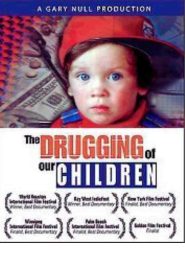The Man Who Lost His Body (1997)
In the 1997 BBC Horizon documentary The Man Who Lost His Body, the extraordinary journey of Ian Waterman unfolds—a story that defies medical odds and illuminates the resilience of the human spirit. Ian, a young butcher on Jersey, suddenly fell ill, losing all sensation and movement in his body. The cause? A rare disease that destroyed the sensory nerves responsible for touch and proprioception—the sixth sense that informs us of our body’s position in space.
A Desperate Struggle
Ian faced a grim prognosis: life in a wheelchair. But he wasn’t paralyzed; he was determined to reclaim his life. With the help of physiotherapists, he discovered an unconventional path to regain control. By using his eyes as a guide, he willed his muscles into action, teaching himself to stand, walk, and perform everyday tasks. Each movement required unwavering conscious effort, but Ian’s determination knew no bounds.
The Neurological Enigma
Neurologist Jonathan Cole recognized Ian’s unique ability to control his motor nerves. Together, they embarked on a quest to understand Ian’s nervous system. They met fellow patients, neuro-anatomists, and linguists, seeking answers. Their journey culminated at NASA, where astronauts train for space missions. Ian, experiencing the world as if weightless, found himself in his element.
A Weight-Free World
Ian’s condition allowed him to experience our world as astronauts do—without the sensation of weight. He accompanied them in their training, defying gravity’s pull. His story transcends the physical; it delves into the mysteries of consciousness, adaptation, and the limits of human potential.
Lessons from the Void
The Man Who Lost His Body challenges our understanding of movement, space, and the mind-body connection. Ian’s resilience teaches us that even when the body falters, the human spirit can soar. His journey invites us to question our assumptions, celebrate adaptability, and marvel at the intricate dance between nerves, muscles, and willpower.
In the void left by sensory loss, Ian Waterman found not despair but triumph—a testament to the indomitable force that propels us forward, even when the body seems lost.




